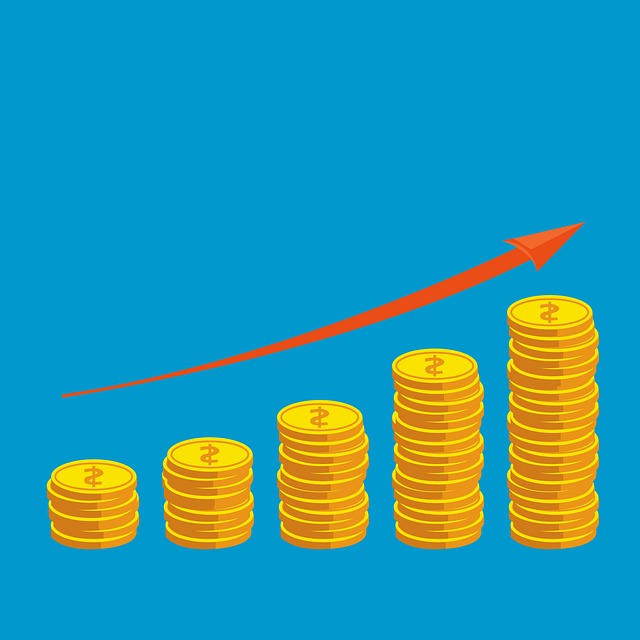The Importance of Budgeting for Financial Freedom
Budgeting stands as a crucial pillar in the quest for financial freedom. Simply put, budgeting is the process of creating a plan to manage your money. This entails tracking your income and expenses, setting financial goals, and making informed decisions on how to allocate resources effectively. When individuals prioritize budgeting, they unlock the path to comprehensive personal finance management. Without it, many find themselves adrift, unable to navigate the complexities of their financial landscape.
Financial freedom ultimately means having enough income to live comfortably, without the constant stress of debt or financial obligations. For many, achieving this state requires a proactive approach, starting with budgeting. Think of a budget as your roadmap; it guides you toward your financial goals while helping you avoid costly detours. When you diligently maintain a budget, you gain a clearer view of your cash flow, which empowers you to make better financial decisions. You can prioritize expenses, save for emergencies, invest for the future, and even allocate funds for leisure activities without feeling guilty. With a well-thought-out budget, you create a safety net that shields you from unexpected financial crises.
Establishing Your Budget: The Initial Steps
Creating a budget may sound daunting, but breaking it down into manageable steps makes the process accessible and straightforward. Begin by gathering all financial documents, including pay stubs, bank statements, and bills. This step ensures that you have a complete picture of your income and expenses. Next, list your total monthly income. This includes not only your salary but also any side hustle income, investment returns, and other earnings.
Once you know your income, it’s time to itemize your expenses. Categorize these expenses into fixed and variable costs. Fixed costs include rent or mortgage, insurance, and loan payments, while variable costs might encompass groceries, dining out, entertainment, and shopping. Understanding these categories will help you gauge where your money goes each month and identify areas for potential savings. Transitioning through this process requires patience, but the reward of gaining control over your finances far outweighs the initial effort.
The Different Types of Budgets
Various budgeting methods cater to different financial goals and personality types. One popular approach is the zero-based budget. This method involves allocating every single dollar earned to specific expenses, savings, or debt repayment, leaving no unassigned funds. It fosters a strong sense of accountability and requires mindfulness in financial decisions. If you’re committed to maximizing every dollar, consider this approach.
Another method is the 50/30/20 rule. It suggests that 50% of your income goes to needs, 30% to wants, and 20% to savings and debt repayment. This rule provides flexibility while encouraging saving and investment. On the other hand, if you prefer a more straightforward approach, you might opt for a simple income-expense tracking system, constantly updating your expenditures against your income. Choose a style that aligns with your habits and make adjustments as needed, remembering that your budget should serve you, not the other way around.
Tracking Your Progress
Once you’ve established a budgeting system, tracking your progress becomes essential. Regularly review your budget every week or month to compare actual spending against your planned budget. This practice provides valuable insights and helps you identify trends and areas where you may need to adjust your spending. For instance, if you consistently overspend in a particular category, it may signal that your budget needs recalibrating to better reflect your lifestyle or needs.
Additionally, use tools and applications to assist in tracking your finances. Many financial apps allow you to connect your bank accounts, giving you real-time insights into your spending habits. Alternatively, some prefer the classic method of using pen and paper or spreadsheets. Whichever method you select, emphasize consistency in tracking. As you see your spending habits evolve over time, you’ll find yourself becoming more disciplined and aware of your financial behavior. This awareness leads directly to improved financial management — a key component in achieving financial freedom.
Adjusting Your Budget Over Time
Your financial situation and goals will change over time, necessitating an adaptable budget. As your income fluctuates, expenses shift, and priorities evolve, your budget should reflect these changes. Regularly reassess your financial goals and how they align with your income and expenditure. For instance, if you receive a raise or change jobs, consider updating your budget to include new savings targets or investments. This flexibility will ensure your budget continues to serve its critical purpose — guiding you toward financial freedom.
Moreover, life events such as marriage, the birth of a child, or retirement may prompt significant changes in your financial landscape. Each of these milestones brings unique financial considerations. Embracing the need to adjust your budget underlines the importance of maintaining a proactive attitude toward your personal finance. Staying engaged with your budget fosters a sense of ownership and commitment to your financial journey.
The Connection Between Saving and Financial Freedom
Budgeting and saving do not exist in isolation; they are closely intertwined components of financial health. The primary goal of a budget should be to facilitate saving. By identifying your needs and wants, you can direct a portion of your income towards savings, such as an emergency fund or retirement account. Establishing an emergency fund protects you from unexpected expenses that might derail other financial goals.
Additionally, consider setting specific saving goals, such as accumulating a certain amount for a vacation, down payment on a home, or retirement. Creating separate accounts for different savings goals can help motivate you to resist the urge to dip into funds allocated for special purposes. When you pursue these goals steadily, you cultivate a mindset of saving, which is crucial to achieving financial freedom.
Investing: The Next Step After Budgeting
Once you feel comfortable with budgeting and saving, the next frontier is investing. While saving is vital for short- to medium-term goals, investing becomes the primary vehicle for long-term wealth accumulation. A budget helps you carve out funds you’re willing to invest, positioning you to grow your wealth over time. Consider educating yourself on various investment vehicles, including stocks, bonds, mutual funds, and real estate. Investing enables your money to work for you rather than simply sitting stagnant.
Furthermore, don’t hesitate to seek professional advice. Financial advisors can assist you in crafting an investment strategy that aligns with your risk tolerance and financial objectives. The goal isn’t merely to save money, but to leverage it strategically to build a future where you can enjoy financial freedom — where your investments generate passive income, allowing you the flexibility to live life on your terms.
Overcoming Challenges in Budgeting
Budgeting comes with its challenges. Life is unpredictable, and expenses can arise unexpectedly. For instance, vehicle repairs or medical bills can easily throw a well-planned budget off course. However, acknowledging these challenges is part of the budgeting journey. Building a buffer into your budget for unexpected expenses is an effective strategy to manage these instances. Ensuring you have a flexible mindset toward budgeting will also serve you well.
Additionally, social pressures can make sticking to a budget challenging. Friends or family may not understand your commitment to financial discipline, leading to conflicts when it comes to activities or outings that don’t fit within your budget. Balancing social life and budgeting can be tricky, but clear communication with loved ones about your financial goals can help. You can still participate in activities while making cost-effective choices that align with your budget, such as opting for potluck dinners instead of expensive restaurant outings.
The Psychological Aspect of Budgeting
When delving into budgeting, it’s important to consider the psychological implications. Many people associate budgeting with restriction, which can lead to frustration or resistance. However, reframing budgeting as a tool of empowerment helps to shift this perspective. Instead of viewing a budget as limiting your spending, consider it as a means to help you achieve your dreams and aspirations. When you recognize that every dollar spent is a step towards your financial goals, budgeting transforms from a chore into a powerful strategy.
Moreover, finding motivation through goal-setting can significantly influence your budgeting experience. Whether it’s saving for an exciting vacation, paying off debt, or securing your retirement, keeping your goals front and center makes it easier to adhere to your budget. You can also celebrate small milestones, reinforcing positive behavior and sustaining your financial commitments in the long run. This cyclic relationship between budgeting, motivation, and financial freedom creates a robust framework for success.
Conclusion
Budgeting forms the foundation for achieving financial freedom. By tracking your income and expenses, making informed spending decisions, and adjusting your strategy over time, you set the stage to reach your financial goals and secure long-term financial health. Remember, this journey is not just about numbers — it’s about your life, your ambitions, and the freedom to live on your own terms.
FAQs
- What is the first step in creating a budget?
- The first step is to gather all your financial documents to understand your current income and expenses. From there, list them out to see where your money goes each month.
- How often should I update my budget?
- It’s best to review your budget regularly, ideally monthly, to assess spending and make adjustments based on changes in income or expenses.
- What if I go over budget in a category?
- If you exceed your budget in a category, re-evaluate that expense. Consider adjusting your budget or cutting back in another area to accommodate the overspend.
- How can I stay motivated to stick to my budget?
- Stay motivated by setting specific goals, tracking your progress, and celebrating small milestones. This creates a sense of achievement and keeps you focused on your financial objectives.
- Can budgeting help with debt repayment?
- Absolutely! Budgeting allows you to allocate specific amounts toward debt repayment, helping you tackle debts systematically while ensuring you manage daily expenses.



